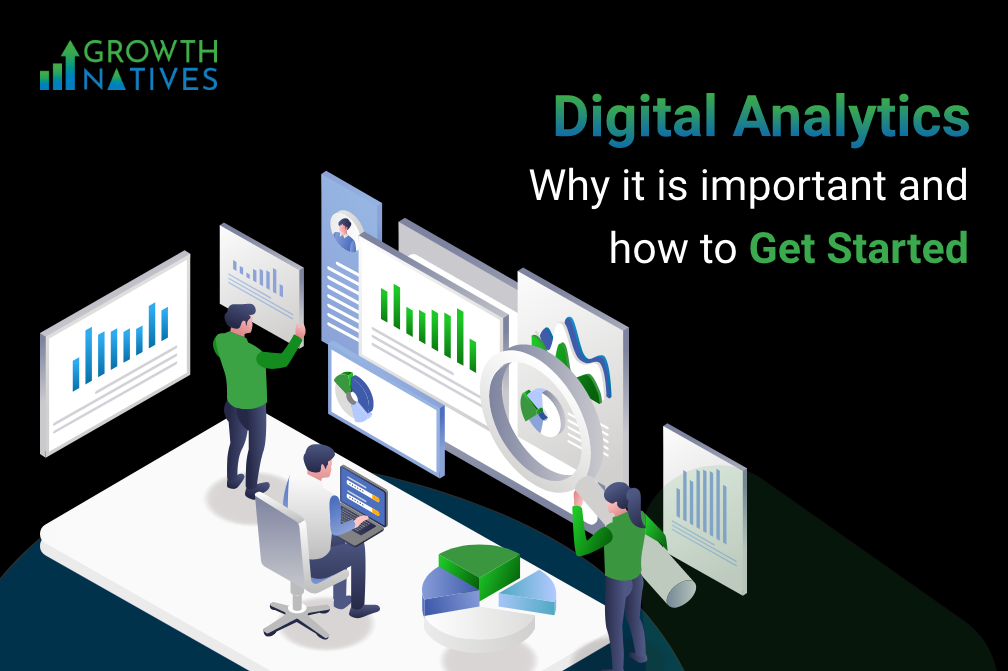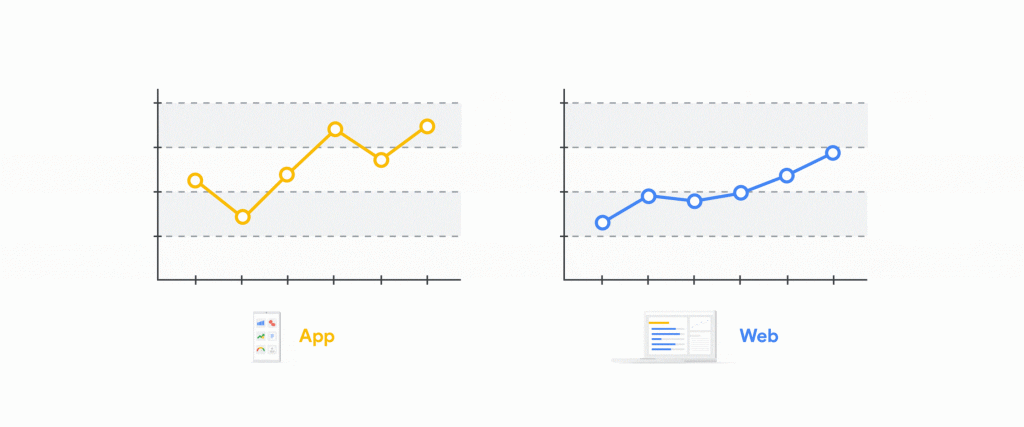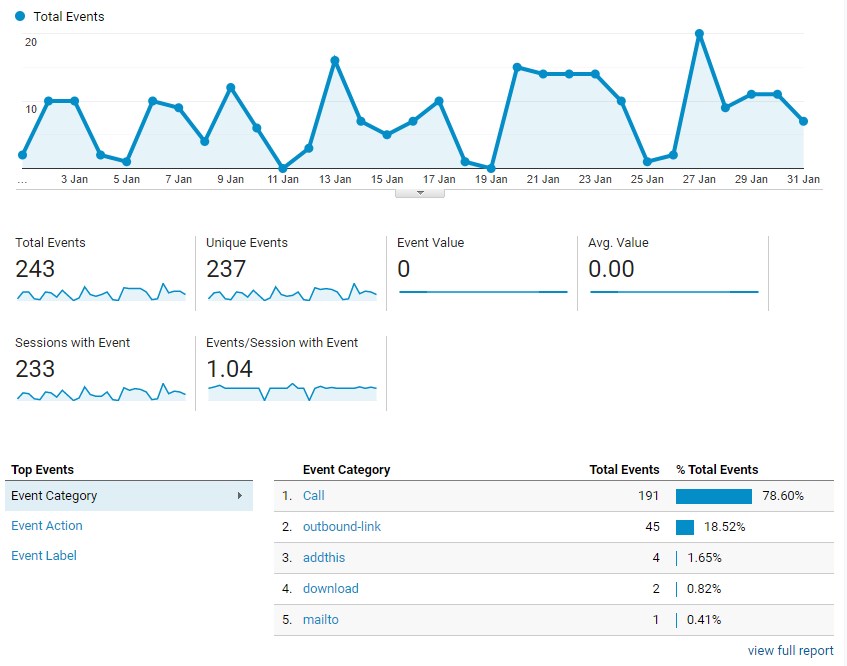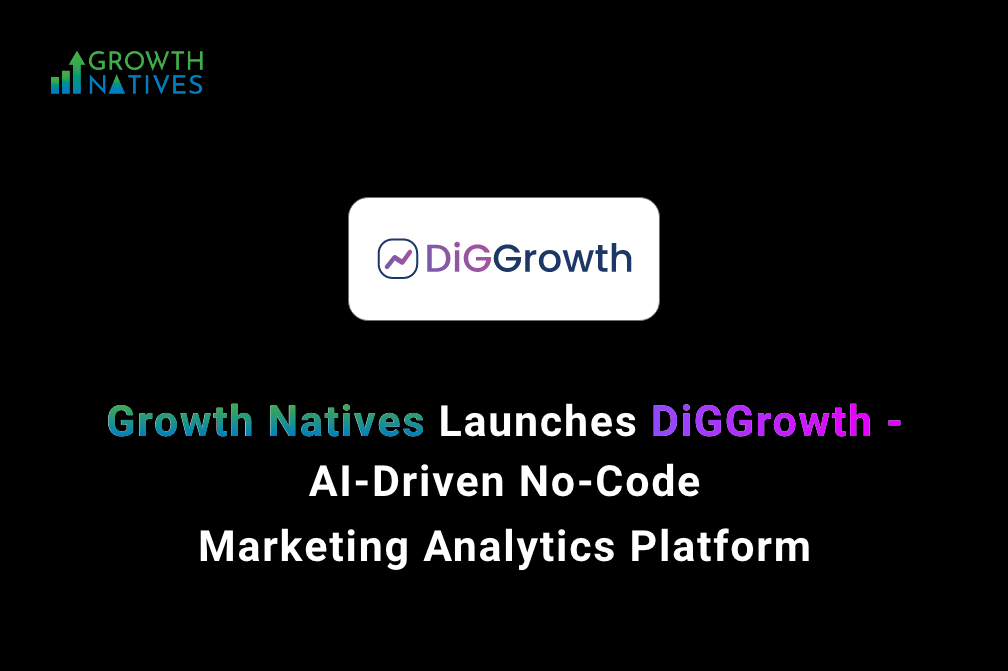
Digital Analytics: Why It Is Important and How To Get Started
By Sakshi Arora
Jan 28, 20228 min read
Is digital analytics powering your business’ decision-making strategy? If not, you are likely to fall behind in the race.
Though we have seen immense growth in the adoption of data and analytics in decision-making, some small and medium businesses are yet to leverage the potential of analytics. Some believe they are too small to benefit from robust analytics while others don’t know how to get started with digital analytics.
If you belong to either of these categories, you have no time to waste. Analytics and data-driven decision-making are no longer optional, and their adoption is critical not only to your business’ growth but also to its survival. If you are looking to get started with digital analytics, we have the roadmap ready for you. Before we delve further into the topic of digital analytics, let us turn our attention to a few interesting stats:
- A study by McKinsey Global Institute states that organizations that are data-driven have a 23x chance of acquiring new customers; they are 6x likely to retain existing customers and 19x likely to be profitable.
- 2022 would be a major inflection point in the use of data analytics as 90% of business strategies shall explicitly use information as a critical enterprise asset, according to Gartner.
- IBM conducted a study on the use of data and analytics and found 62% percent of businesses reporting a competitive edge using data and analytics. This was predominant among B2C businesses.
These three studies establish the benefits that organizations enjoy with digital analytics.
But how should you get going with this?
AI and Big Data are likely to drive business success in the future. It’s imperative that you become data-driven and put data at the center stage of your decision-making. How? Use digital analytics that is the first step on this route and structure the tons of data you are generating through your website, point of sale, social media, and other sources to turn it into a treasure of information.
The sooner you get started with it, the faster your business will flourish in a competitive market.
It’s Time You Dumped the Status Quo
The reason you have stayed away from implementing analytics has probably to do with being status quo. Perhaps, your organization never saw through the immense benefits that analytics brings to decision-making, where all your strategies, plans, and ideas are backed by hard data and reasoning, and not by assumptions and past successes.
Yet, it isn’t too late to make digital analytics the bedrock of your decision-making. The fact is that gathering data and analyzing it using tools is easier than it ever was. While Google Analytics may be the only tool you have heard of, dozens of other tools can offer you deeper insights into your audience, target markets, and buying behavior to make the most rewarding business decisions.
Saying no to analytics will be a fool’s errand, especially in 2022 and beyond. Sans analytics, you may be forced to deal with dwindling sales and a shady lead generation strategy. Big giants such as Nokia and Kodak have paid the price for not having had their hand on the changing pulse of the market. So, now is the time to reason with the naysayers in the organization and adopt digital analytics as part of your growth strategy.
What Is Digital Analytics?
By definition, it is an organized process of analyzing data collected from different sources. These sources can range from website traffic to data from mobile applications and even offline data that has been digitized. In-depth analysis of this data helps businesses get insights into the behavior of their users and their interactions with the brand. This information can be used to improve products, processes, and marketing strategies that will eventually power your growth.
How To Get Started With Digital Analytics?
We have so far covered the importance of analytics and how it can help your organization in taking information-backed decisions. Getting started with analytics is easier than you might have thought as there are dozens of free and premium tools that let your organization capture and analyze data from different sources. Here are three aspects of digital analytics that your business must get started with immediately:
Web & App Analytics
Your business surely has a website if not a mobile application yet, though mobile apps have become as important as websites with the majority of the traffic being generated on mobile devices. Websites and apps are the most important digital marketing assets and help you promote your products, sell them, generate leads, and offer support services to your customers. Hence, these are the starting point for analytics for most businesses.

Google Analytics is likely to be your first-choice tool for this. However, you can explore alternatives such as Adobe Analytics, Mixpanel, Matomo (formerly Piwik), Plausible, and Woopra, to name a few. You can choose any of these tools based on the features and functionalities and start analyzing your website and mobile application without hours. All of these analytics tools offer you key insights that include:
- Page visits – pages, app screens users are viewing
- Site/app search – things users search for in website apps
- Location – the location of the visitors
- Devices/browsers – devices and browsers being used to reach the site
- Keywords - keywords used to visit your website
- Interaction stats – time spent on pages, downloads, clicks, scroll depth, etc.
- Goal conversion – insights into goal conversion and targets being met
All these insights are important when it comes to deciding the right strategy for your business. For instance, if your website isn’t being found for the right set of keywords, you must reinvest into building content around those keywords to generate traffic. The same is true for scroll depth or location attributes of users. You must work on your digital marketing campaign to reach the target market and ensure your content is being read and understood.
Event Tracking
Digital analytics has evolved. It is no longer only about knowing who your visitors are and where they are coming from. You want a transactional relationship with your user, one that helps you convert a user into your customer. There are various aspects of customer interaction that need to be tracked and are known as events. Event tracking may include:
- Users visiting product pages and buying products from your online store
- Users filling out survey and lead generation forms
- Users downloading tools, software, and ebooks from the site
- Users subscribing to newsletters, etc.
Event tracking is one of the most important aspects of digital analytics. Several tools help you with Event tracking including Google Tag Manager, Smartlook, Piwik Pro Analytics, and Popcorn Metrics. With these tools, you can easily track all user interactions on your website and optimize these to ensure higher interactions and conversions.
Data Visualization
While web analytics and event tracking shall help your business gather vital data and analyze it, turning it into actionable reports is known as data visualization. This is the final and crucial step in the process of leveraging digital analytics. Here, raw data is represented graphically and converted into graphs, charts, and maps for easier understanding and faster decision-making.
If you are using Google Analytics to track the performance of your website and apps, Google Data Studio would be a good choice for data visualization. It converts information into smart reports that offer an overview and in-depth information of the raw data in a graphical interface. You can also try your hands at Tableau and PowerBI which take data visualization a step further and offer real business intelligence.
Final Words
Summing up, Analytics not only helps your organization in making informed and data-driven decisions but also in identifying the major pain points of your business. It helps recognize the real problems your business faces as well as the reasons behind its success. Without data analytics, your decision-makers would have to shoot in the dark to gain a competitive advantage.
From ensuring your website traffic is generated from the right locations to using the right keywords to customer interactions, digital analytics is a powerful tool that can take your business to greater heights and put it ahead of the competition. You can no longer afford to not use analytics and should get started with it today.
If you are looking for a team that can implement the right digital analytics tools and processes for your business, we at Growth Natives can help you. We hold expertise in implementing analytics and other tracking tools for websites, mobile apps, and other digital assets and have helped several businesses use the user data to make major strategic improvements and thrive. To know more about digital analytics and clear your doubts and queries, write to us at info@growthnatives.com or visit our website.






